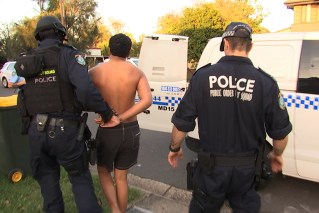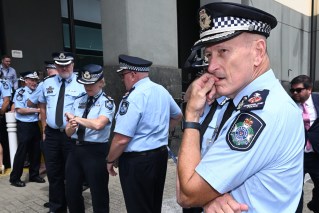With millions working from home, experts fear our power grid will go into meltdown
Air conditioners could send Australia’s power grid into meltdown this summer, as roughly one third of the workforce do their jobs from home, experts have warned.

Another scorching summer could spark problems on Australia's power grids. Photo: ABC
According to research company Roy Morgan, more than 4.3 million Australians are working from home as employees and employers continue to take a cautious approach to coronavirus social-distancing.
But warmer weather has come with a warning that increased use of air-conditioning in homes could lead to more blackouts and higher electricity bills.
“Air-conditioning is what drives our maximum demand in Australia,” said Peter Dobney, the former founding chairman of the Energy Users Association of Australia.
“We can expect higher prices, in fact, I think that’s a certainty.”
Last summer was Australia’s second-hottest on record and spring temperatures have already been warmer than average in many areas, according to the Bureau of Meteorology (BOM).
Dr Paul Bannister, an energy efficiency expert from consulting services company Delta Q, said that did not bode well for the months ahead.
Blackouts can be sparked when electricity infrastructure is overwhelmed by demand.
When that happens, energy providers have to choose areas of the grid to turn off, Dr Bannister explained.
“And with more people working from home there will be a higher load in the residential areas,” Dr Bannister said.
“But there won’t be a comparable drop in the commercial load, because most of the buildings are still operating.”
Some companies, like Optus, have opted for socially-distanced floors in their Sydney headquarters, with rosters allowing 50 per cent of staff in the office.
Others, like ANZ, sent around 95 per cent of their workforce home at the beginning of the pandemic, and have flagged that some employees may never return to Melbourne and Sydney offices.
“It’s very clear there is a risk here, with the air-conditioning running in the home and in the building at the same time,” Dr Bannister said.
“And cooling a house, it’s not as well insulated as a building, and the home may be less energy efficient.”
Energy politics in Australia has been divisive in recent history.
A storm-stricken South Australia experienced a statewide blackout in 2016, and a stoush erupted in the aftermath as some politicians blamed the incident on renewable energy sources they argued were unreliable.
The blackout led to Tesla founder Elon Musk building the world’s largest lithium-ion battery to store power for the state.
Meanwhile, AGL Energy had to turn off its Tomago Aluminium Smelter in NSW — which is responsible for using roughly 10 per cent of the state’s power — for several days in January in a bid to stop blackouts.
Mr Dobney said there were other ways households could help, including going without air-conditioning for 15 minutes every hour in peak periods.
Some power companies offer a service where customers can order them to automatically turn off air conditioners.
It’s known as “load shedding”, and some large corporations already do it lower power costs.
“It would get the demand down by 20 per cent or more in those residential areas,” Mr Dobney said.
“And this idea would mean the grid could keep up with demand.”
– ABC / Emma Elsworthy












